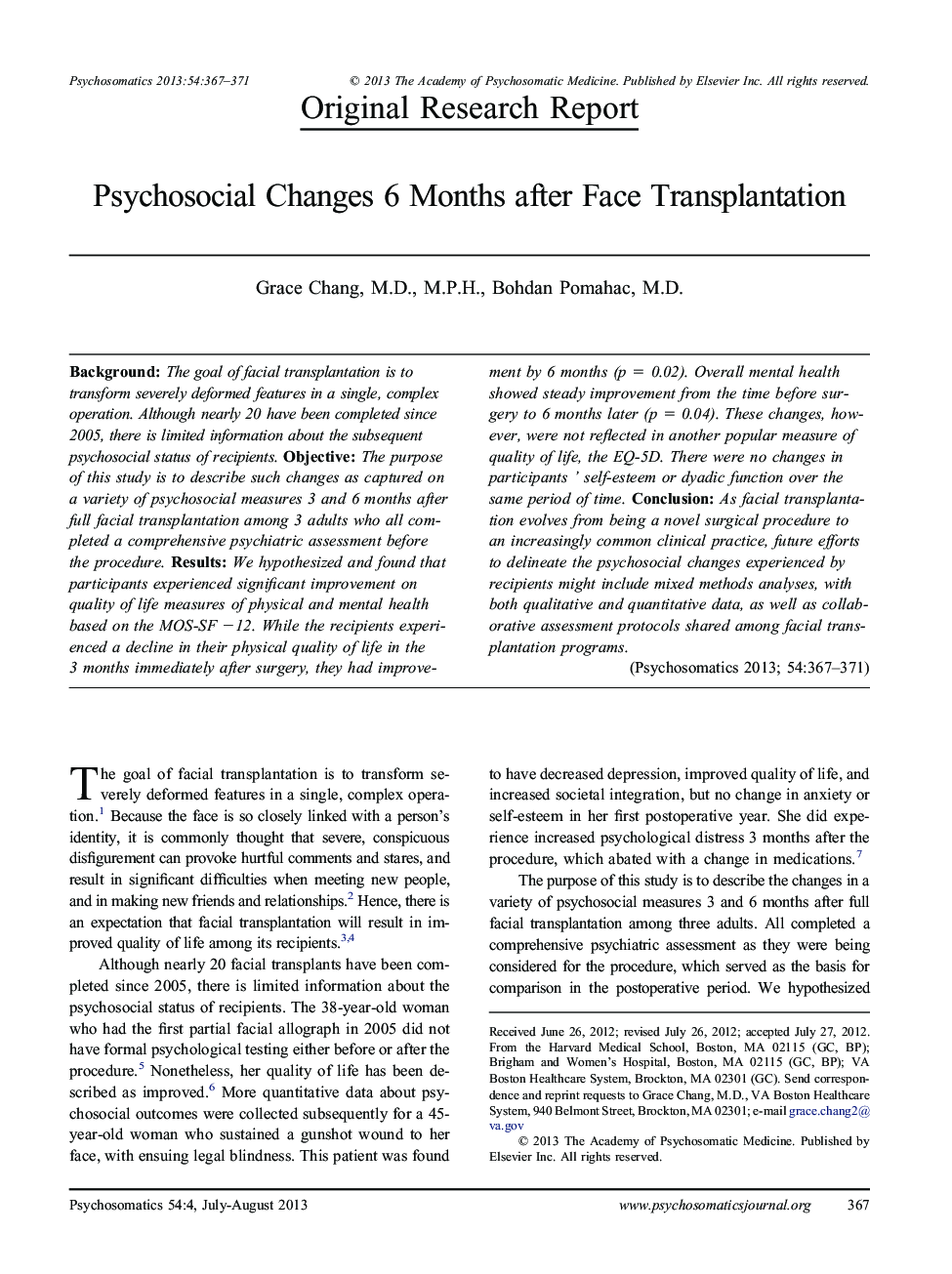| کد مقاله | کد نشریه | سال انتشار | مقاله انگلیسی | نسخه تمام متن |
|---|---|---|---|---|
| 337919 | 547644 | 2013 | 5 صفحه PDF | دانلود رایگان |

BackgroundThe goal of facial transplantation is to transform severely deformed features in a single, complex operation. Although nearly 20 have been completed since 2005, there is limited information about the subsequent psychosocial status of recipients.ObjectiveThe purpose of this study is to describe such changes as captured on a variety of psychosocial measures 3 and 6 months after full facial transplantation among 3 adults who all completed a comprehensive psychiatric assessment before the procedure.ResultsWe hypothesized and found that participants experienced significant improvement on quality of life measures of physical and mental health based on the MOS-SF −12. While the recipients experienced a decline in their physical quality of life in the 3 months immediately after surgery, they had improvement by 6 months (p = 0.02). Overall mental health showed steady improvement from the time before surgery to 6 months later (p = 0.04). These changes, however, were not reflected in another popular measure of quality of life, the EQ-5D. There were no changes in participants ' self-esteem or dyadic function over the same period of time.ConclusionAs facial transplantation evolves from being a novel surgical procedure to an increasingly common clinical practice, future efforts to delineate the psychosocial changes experienced by recipients might include mixed methods analyses, with both qualitative and quantitative data, as well as collaborative assessment protocols shared among facial transplantation programs.
Journal: Psychosomatics - Volume 54, Issue 4, July–August 2013, Pages 367–371